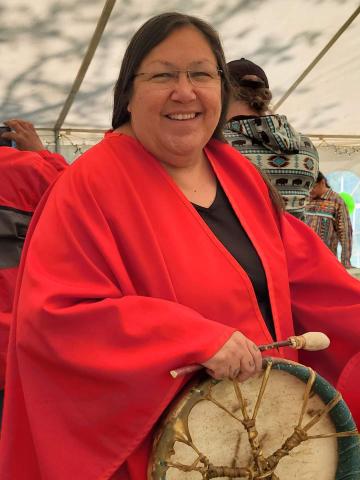Intentional anti-racism begins with each of us.

Learning
In 2012, I came home from my last day of work at an Indigenous Child Welfare agency where I worked for eight years as a social worker in foster care. I was tired, deeply grieved, and broken from the work of crisis management and problem solving. On my way home I thought of the energy, time, and resources spent on attempts to solve problems. As I came into my home, I stopped briefly in the front porch. Knowing my nine-year-old daughter was eagerly waiting for me to get home, I conceded deeply to my innermost self that I would commit my life and work to being solution-focused. This intention led me to the relationship and community I am involved in now.
Over the next years, as I sought truth and hope, I thought of what needs to be done to bring about the change needed. Having been a member of recovery circles for over 40 years, I began to think of the personal transformation I experienced there and the many things I learned along the way. First of all, in the challenges of life, I learned that I can help others if I help myself. Being an individual in recovery circles, learning from the recovery of others, and sharing from my own life deeply changed my thinking about healing and wellness.
The other critically important part of this is a personal inventory of my life and thoughts, and how it contributes to life lived out. So many might not feel ready for a 12-step recovery program kind of way for healing from racism, but the idea of each individual noticing and knowing the truth of their own lives can contribute to the collective communities of wellness that we all hope for.
It never means dismissing the problem or situation. This is not false positivity but a deep acknowledging of truth. My commitment has been with this intention, set daily, that the truth would set me free in whatever challenging life situations I found myself in. So it is in this thinking that I know that anti-racism begins within each one of us.
Racism is something we all need to take personal responsibility for. I read that many are in denial about racism, and that they can only be in denial if they are disconnected from themselves. This made great sense to me. The story of Colin Kaepernick’s life confirmed this for me. Kaepernick, a Black professional football player, was raised by White adoptive parents, and throughout his life he experienced racism and prejudice. But his White parents were oblivious to it because they did not experience it personally—and so they did not believe racism exists.
As an Indigenous Cree woman, to stand in the truth that all our stories in Canada are connected is deeply profound. We are all connected, back to the first story from an Indigenous worldview. It is also as important to acknowledge the Western worldview in the society we live in now. It is important for each one of us to know what happened and how society got to where it is today. It is important for each person to decentre dominant White Western worldview knowledge systems in order to have a balance of Indigenous and other diverse worldview knowledge systems that are equally as valuable. I think of the term “intercultural embodiment,” which is about acknowledging the diversity in our society and knowing we all have something to learn from each other.
Personal reconciliation is a processing of our individual thoughts and actions, and examining our own lives and thinking. It is about knowing our own stories when it comes to where we grew up and where we live now, knowing what is the stories of the land and the people of these lands, and what happened. Too often, we look to organizations, institutions, leadership, and governments to “solve” the problem of racism. But what if we also reflected inward? We could ask ourselves: What has informed my life and the lenses through which I view the world and those different from me? Where does my story fit into the story of communities of wellness that we hope for? It is too easy to focus on the problem and those who need the help rather than to think about our own lives and how we may be a part of the solution, or a part of the problem.
Faith Reflection
This prayer challenges racism by inviting challenges racism by inviting commitment to the genuine inclusion of Indigenous Peoples in decision making on all matters that affect them. It was written by Sara Stratton, a non-Indigenous person, during a recent pipeline protest.
What additional prayers for reconciliation might you offer?
Living It Out
I have sat in circles for over 40 years, in the last several years on reconciliation, and know that it is not another book or workshop that is needed but a commitment to personal reconciliation and ongoing community conversations that has and will make the biggest difference.
—Susie McPherson Derendy (she/her) is the former Keeper of the Learning Circle at the Sandy-Saulteaux Spiritual Centre. The Centre trains people for Indigenous leadership roles in The United Church of Canada and other churches.
This reflection originally appeared in 40 Days on Anti-Racism 2022.
Downloads
- We Dare to Hope (25.44 KB) (Word)